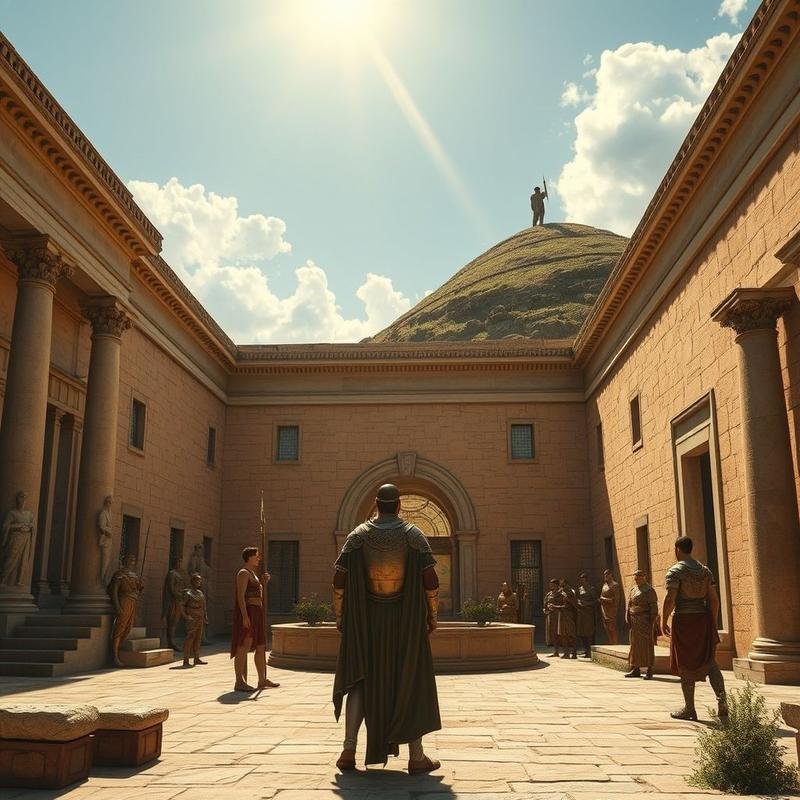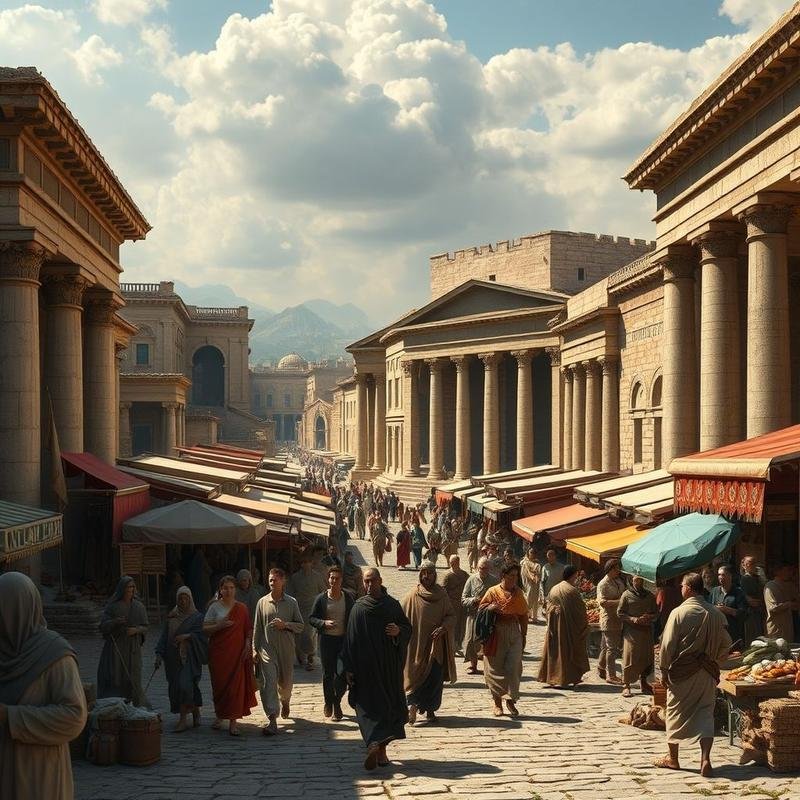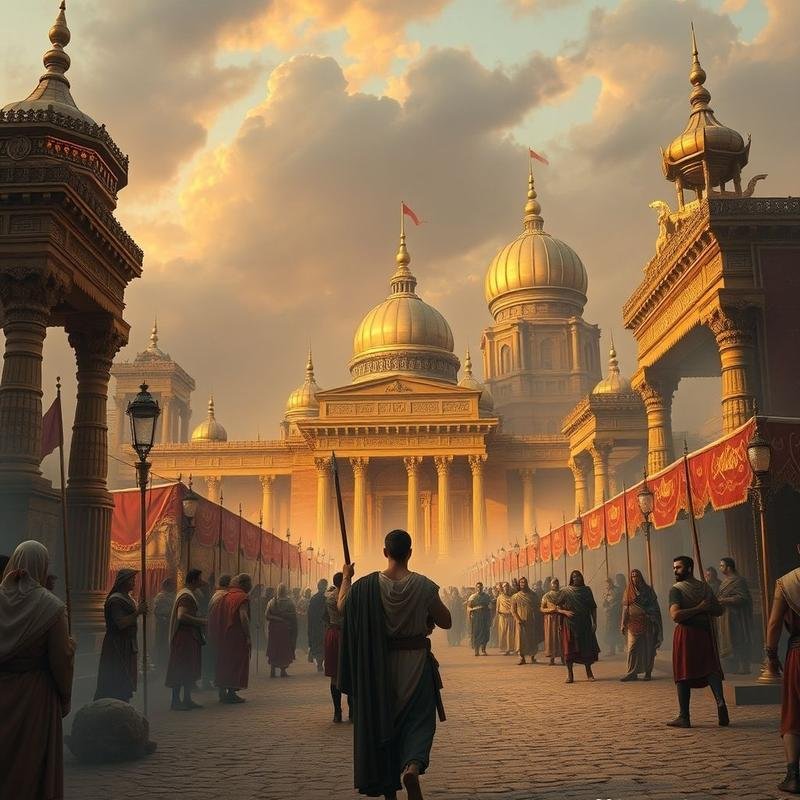Alexander the Great: What If He Had Lived? An Alternate World.

Alexander the Great: What If He Lived?
The sudden demise of Alexander the Great in 323 BC plunged the ancient world into profound mourning. The conqueror, widely credited with inaugurating the Hellenistic Golden Age, collapsed unexpectedly in Babylon, leaving a significant power vacuum and a question that has resonated through the ages: what was the true cause of his death? Was it, as some historians posit, typhoid fever? Or was it the result of a more sinister poisoning plot? His untimely death at the height of his power ignited a succession crisis among his ambitious generals, the Diadochi, each vying for control of his vast empire. Figures such as Ptolemy, Seleucus, Antigonus, and Lysimachus became indelibly etched in history through bloodshed and bitter conflict. Alexander’s death within his Babylonian palace marked not only the end of a brilliant military leader but also the beginning of an era of instability. The absence of a clear and universally accepted heir unleashed the ambitions of his generals. Even as Alexander’s body lay in state, conspiracies were being formulated within Babylon itself. The Macedonian army fractured into two factions: the infantry advocated for the installation of Alexander’s half-brother, Arrhidaeus, while the elite guard preferred to await the birth of Roxana’s child. This disagreement rapidly escalated into armed conflict, culminating in a tenuous compromise: Arrhidaeus was crowned king as Philip III, with Perdiccas serving as regent. However, this arrangement failed to quell the unbridled ambitions of others. Ptolemy, observing these events from Egypt, seized the opportunity to intercept Alexander’s body during its transport to Macedonia, interring it in Alexandria, a strategic move that significantly bolstered his legitimacy and authority in Egypt. Seleucus, the governor of Babylon, allied himself with Ptolemy against Perdiccas. Meanwhile, Antigonus, the governor of Phrygia, strategically positioned himself to consolidate his own power. The empire that Alexander had forged through military prowess and diplomatic skill began to fracture and disintegrate, transforming into a battleground for ambitious contenders.
An Alternate Timeline: Alexander’s Survival
But what if Alexander had not succumbed to illness in Babylon? What if he had survived? History, as it is known, would have been fundamentally altered. Instead of the devastating wars of succession, Alexander might have embarked on new military campaigns, perhaps eastward to complete the exploration of Central Asia, or southward towards the Arabian Peninsula. More importantly, he likely would have focused on consolidating the foundations of his sprawling empire. Recognizing the inherent fragility of his creation, Alexander would have prioritized essential administrative reforms. He would have reinforced the policy of cultural integration, extending beyond mere mass marriages. Alexandria, the jewel of the Mediterranean, would have served as a model for new cities, vibrant centers of cultural and commercial exchange, stretching from the Nile to the distant borders of India. Judicial reforms would have been inevitable. Crucially, he would have addressed the succession dilemma. Lacking a clear legitimate heir, Alexander would have strived to formally and unequivocally appoint a successor, perhaps his half-brother Philip Arrhidaeus, or even his unborn son, supported by a strong regency council to ensure stability.
A Reign Extended: A World Transformed
What if Alexander had continued to rule his empire for another decade, or even two? The contours of the ancient world would certainly have undergone a dramatic transformation. Instead of the bloody Diadochi wars that fragmented his kingdom, he would have continued his ambitious project of integrating civilizations. Imagine Alexander continuing to reign until 300 BC. This extended period would have witnessed a systematic strengthening of Hellenistic culture in the East, extending beyond the construction of Greek cities to the establishment of schools and institutes dedicated to disseminating Greek philosophy and science throughout the empire. Envision the Library of Alexandria flourishing under his direct patronage, becoming a beacon of science and knowledge, attracting scholars and thinkers from all corners of the world, an unparalleled global center of learning.
Political and Administrative Consolidation
Politically, Alexander would have tightened his control over the empire, centralizing power, perhaps through the implementation of radical administrative reforms, drawing upon the Persian model for managing vast provinces. More importantly, he would have resolved the succession issue in a manner that would have prevented the outbreak of civil wars, perhaps by persuading his generals to accept his son as the legitimate heir, or by selecting one of his competent military leaders and granting him broad powers to ensure a smooth transition of power.
The Fate of Rome: A Different Trajectory
In that alternate future where Alexander consolidated his grip on his empire, he would have centralized power unchallenged and resolved the succession dilemma in a way that would avert devastating civil wars. Would he have succeeded in persuading his generals to install his son as the legitimate heir? Or would he have chosen one of his competent military leaders and granted him broad powers to ensure a smooth transition of power?
In this scenario, the future of Rome would have been radically different. Instead of a gradual rise, it would have faced a unified power led by Alexander or his successors, a power possessing military, economic, and cultural superiority. Imagine Alexander himself leading military campaigns in the Italian Peninsula, or dispatching armies led by commanders like Seleucus or Ptolemy to impose his control over the rising Roman cities. Rome, in this case, would have become a province of the Alexandrian Empire, subject to Hellenistic rule. Even if not completely conquered, the Alexandrian power would have imposed suffocating economic and political restrictions on Rome, hindering its growth and expansion. Perhaps Alexander would have utilized the legendary wealth of the East to finance military campaigns in the West, or establish thriving Greek colonies in Italy to strengthen Hellenistic influence. And even if Rome had succeeded in overcoming these immense challenges, its rise to power would have been significantly delayed, and it might never have achieved the same level of dominance that history records. Instead of the Roman Empire as we know it, the world would have witnessed the dominance of the Alexandrian Empire, or at least, a delicate balance of power.
A Lasting Legacy: Art, Politics, and Culture
But what if Alexander’s vision had persisted? What if he had not died in Babylon? Imagine the profound impact that would have had on the arts, philosophy, and political thought. Instead of the rapid disintegration of his empire, could he not have steered the course of Hellenistic civilization towards entirely new horizons?
Artistic Innovation
In the realm of art, Alexander would have continued to patronize artists and sculptors, funding large-scale projects that skillfully blended Greek and Eastern styles. Imagine imposing temples in Persia, adorned with statues depicting Greek gods with Persian features, or paintings depicting Alexander’s battles in a style that combined Greek realism with Eastern ornamentation. Could we not have witnessed the emergence of an entirely new artistic school, transcending the boundaries of time and space, and establishing a unique global aesthetic?
Political Evolution
Politically, Alexander would have continued to develop models of governance that combined centralization with administrative efficiency, drawing upon the best aspects of Greek, Persian, and Egyptian civilizations. He would have trained a new generation of leaders and administrators, characterized by competence and loyalty, to ensure the continuity of his empire. Perhaps he would have established advisory councils comprising representatives of various peoples, to ensure their participation in governance and mitigate potential unrest.
Economic Prosperity
Economically, Alexander would have continued to promote trade and commercial exchange between different parts of his empire, leveraging trade routes stretching from India to the Mediterranean. He would have improved infrastructure, such as roads, canals, and ports, to facilitate the movement of goods and people. Perhaps he would have standardized currency, measures, and weights to simplify commercial transactions and reduce fraud.
Cultural Exchange
Culturally, Alexander would have continued to encourage cultural exchange between different peoples, by supporting the arts, sciences, and literature. He would have established more libraries, museums, and institutes to collect, preserve, and disseminate knowledge. Perhaps he would have commissioned translations of literary and scientific works from various languages into Greek, to make them accessible to a wider audience.
But to what extent would this cultural integration have succeeded? Would it have led to the emergence of a new global culture, or to conflicts between different identities? And would Alexander have been able to maintain the unity of his growing empire, or would it have ultimately disintegrated due to internal and external pressures? These questions open the door to countless reflections on the possibilities of alternate history.
Conclusion: A World Shaped by “What Ifs”
Imagine Alexander, after years of wise rule and cultural expansion, leaving behind a unified and prosperous empire, governed by a dynasty of competent successors. This empire, stretching from Greece to India, becomes a global center of knowledge, culture, and trade, and plays a pivotal role in shaping the future of human civilization. Rome, in this scenario, might remain a small regional power, or it might be absorbed into the Alexandrian Empire, becoming part of a larger and more diverse world.
Conversely, imagine that Alexander, despite all his efforts, fails to resolve the succession dilemma, or faces internal rebellions or external invasions. His empire disintegrates into warring kingdoms, ruled by ambitious generals seeking power and wealth. The world reverts to a state of chaos and conflict, and opportunities for development and progress are lost.
Faced with these multiple possibilities, the most fundamental question remains: how could Alexander have altered the course of history if he had lived longer? And what lessons can we glean from his life and achievements, as well as from his mistakes and failures?
Considering these fascinating possibilities, which aspect of Alexander’s potential legacy – whether it relates to geopolitics, culture, or even the challenges he would have faced – intrigues you the most and warrants further research and discussion? Share your thoughts and comments on how the ancient world might have been shaped differently if Alexander the Great had lived longer and wisely managed the potential succession crisis.








